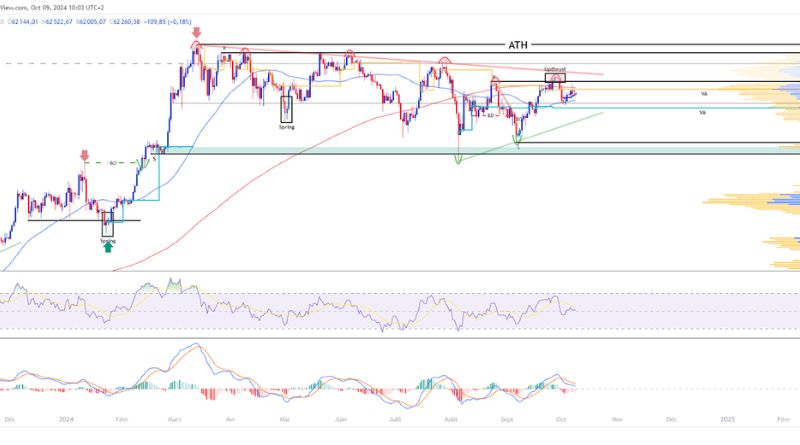In an increasingly digital world, data security breaches have become more frequent and sophisticated, and no industry is immune from cyber threats. One company that recently found itself at the center of such a crisis is Mr. Cooper Mortgage Company. A well-known player in the mortgage servicing industry, Mr. Cooper was targeted by a cyber attack that raised serious concerns about the security of sensitive financial data. This article will explore the details of the attack, its impact on both the company and its customers, and what individuals can do to protect themselves from similar threats.
Table of Contents
What Happened in the Cyber Attack Mr. Cooper Mortgage Company Incident?
In the case of the cyber attack Mr. Cooper Mortgage Company, the company was targeted by hackers aiming to breach its security systems and access sensitive customer information. Mr. Cooper, one of the largest mortgage servicers in the United States, manages millions of mortgage accounts, making it a prime target for cybercriminals looking to exploit the vast amounts of personal and financial data it holds.
While the specifics of the attack are still under investigation, Mr. Cooper confirmed that its internal systems were compromised. The company immediately reported the breach and assured customers that it was taking swift action to secure its infrastructure and minimize any potential damage. As of now, Mr. Cooper has not publicly disclosed the exact nature of the hack or the methods used by the cybercriminals.
The breach was discovered through routine monitoring of Mr. Cooper’s systems, and the company responded by activating its cybersecurity protocols. In addition to securing its systems, Mr. Cooper initiated an internal investigation and hired cybersecurity experts to assess the full extent of the damage.
How Did the Cyber Attack Occur?
Cyber attacks on large corporations like Mr. Cooper can occur through various methods, including malware, phishing, ransomware, or exploiting system vulnerabilities. While the exact method behind the cyber attack Mr. Cooper Mortgage Company is still unknown, it is likely that one or more of these tactics were employed to gain access to sensitive data.
For instance, phishing emails are one of the most common ways hackers breach a company’s defenses. These emails often appear to be legitimate communications from trusted sources, tricking recipients into clicking on malicious links or downloading infected attachments. Once inside the system, the hackers can infiltrate sensitive areas, steal information, or deploy malware.
Alternatively, ransomware attacks could have played a role, where hackers encrypt a company’s data and demand a ransom in exchange for the decryption key. If Mr. Cooper’s systems were compromised in such a manner, it would explain the urgency with which the company responded to the breach.
What Data Was Compromised?
The main concern for Mr. Cooper’s customers is the type of data that may have been compromised during the attack. Mr. Cooper services a large number of mortgage accounts, meaning a significant amount of sensitive financial data is stored within its systems.
The breach likely affected personal information such as:
- Names and addresses of customers
- Social Security numbers and other personal identifiers
- Mortgage account details, including loan amounts and payment histories
- Bank account details, if linked to mortgage payments
If the hackers gained access to such information, there is a high risk of identity theft, fraud, and unauthorized transactions. In response, Mr. Cooper assured customers that it would notify those affected by the breach and offer steps to mitigate any potential harm, including providing credit monitoring services.
Immediate Actions Taken by Mr. Cooper
Upon discovering the breach, Mr. Cooper took several immediate actions to mitigate the damage and protect its customers:
1. Investigation and System Security
The company launched an internal investigation to assess the scope of the breach. In addition, cybersecurity experts were called in to secure the compromised systems and implement additional security measures to prevent future attacks.
2. Notification to Affected Customers
Mr. Cooper began notifying affected customers as soon as the breach was confirmed. Customers who may have had their data compromised were informed about the breach and advised on steps to protect themselves, including monitoring their financial accounts and using credit monitoring services.
3. Credit Monitoring and Identity Protection
To protect its customers from potential identity theft, Mr. Cooper offered free credit monitoring services to those impacted by the breach. These services help individuals track their credit reports and detect any suspicious activity that could indicate fraud.
4. Ongoing Support and Communication
The company continued to communicate with customers, providing updates on the investigation and steps being taken to address the breach. This proactive approach was designed to rebuild trust and ensure that customers felt supported throughout the process.
Impact on Customers and the Company
For Mr. Cooper’s customers, the cyber attack Mr. Cooper Mortgage Company incident could have serious repercussions. The loss of personal and financial data can lead to identity theft, unauthorized charges, and even long-term damage to an individual’s credit score. However, Mr. Cooper’s swift response and offering of credit monitoring services provide some level of reassurance to customers who may have been affected.
On the corporate side, Mr. Cooper may face reputational damage, as well as potential financial losses due to the costs associated with securing its systems and providing support to impacted customers. Additionally, the company could be subject to fines or regulatory scrutiny if it is determined that it failed to take adequate precautions to protect customer data.
Reputational Damage
For any company, a data breach can cause lasting reputational damage. In the case of Mr. Cooper, customers may question the company’s ability to safeguard their sensitive financial data. As more companies face cyber attacks, consumers are becoming increasingly aware of the importance of data protection and security, making it crucial for companies like Mr. Cooper to maintain a strong cybersecurity posture.
Financial Losses
The costs of responding to a cyber attack can be significant. Mr. Cooper likely spent considerable resources on investigation, system repairs, and offering credit monitoring services. Furthermore, the company may face legal costs and compensation claims from customers who were directly impacted by the breach.
How Can Customers Protect Themselves?
If you are a customer of Mr. Cooper or any other financial institution, there are several steps you can take to protect yourself from the potential consequences of a cyber attack:
1. Monitor Your Credit
Take advantage of any credit monitoring services offered by the company and regularly check your credit report for signs of unauthorized activity. You can also request a free credit report from the major credit bureaus to keep an eye on your financial health.
2. Change Your Passwords
Change the passwords for your online accounts, especially those related to banking and finances. Ensure that your new passwords are strong and unique to each account.
3. Enable Two-Factor Authentication (2FA)
If available, enable two-factor authentication for your accounts. This adds an extra layer of security by requiring a second form of verification, such as a code sent to your phone, in addition to your password.
4. Be Wary of Phishing Scams
Be cautious of unsolicited emails, phone calls, or text messages asking for personal information. If you receive any suspicious communication, contact Mr. Cooper or your financial institution directly to verify its legitimacy.
5. Report Suspicious Activity
If you notice any unusual activity on your accounts, report it immediately to Mr. Cooper and your bank. The faster you act, the better chance you have of minimizing the impact of fraud.
Conclusion
The cyber attack Mr. Cooper Mortgage Company incident underscores the growing threat of cybercrime and the importance of securing sensitive financial data. While Mr. Cooper acted quickly to secure its systems and support affected customers, it serves as a reminder for both individuals and companies to prioritize cybersecurity and remain vigilant in the face of evolving threats. By staying informed and taking proactive steps to protect personal information, consumers can reduce their risk of falling victim to future attacks.
FAQs
1. What should I do if I was affected by the Mr. Cooper cyber attack?
If you were impacted, immediately take advantage of any credit monitoring services provided by Mr. Cooper, and regularly check your credit reports for signs of fraud. Change your passwords for online accounts and be cautious of any suspicious emails or calls.
2. How do I know if my data was compromised?
Mr. Cooper will notify affected customers directly. You should receive an official communication from the company if your data was compromised. Be sure to follow any instructions provided to protect yourself.
3. Can I sue Mr. Cooper for the data breach?
While it’s possible to file a lawsuit, whether or not you have a valid claim depends on various factors, including the nature of the breach and whether Mr. Cooper violated any data protection laws. Consult with a legal professional to understand your options.
4. How can I protect my mortgage information from cyber threats?
Use strong passwords, enable two-factor authentication, regularly monitor your credit, and be cautious about unsolicited communications. Make sure your devices have up-to-date security software to help safeguard your mortgage information.
5. Will Mr. Cooper reimburse me if my financial information is stolen?
While Mr. Cooper has offered credit monitoring services to affected customers, reimbursement for financial losses due to identity theft would depend on the specifics of the situation. Contact Mr. Cooper directly for assistance.















Leave a Reply